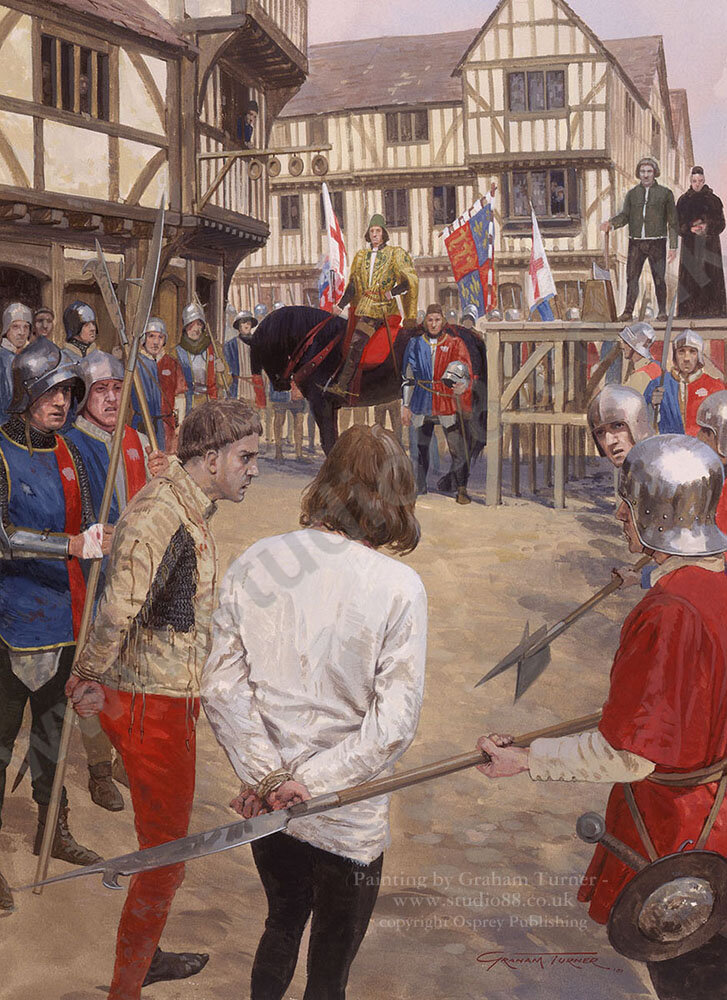
The Consequences of Defeat
(Graham Turner: Studio 88)
Before Edward left Tewkesbury, there was one more thing to do to secure his crown. He has to eliminate his chief opponents. It was not at all unusual to execute leaders of the losing side after a battle, but Tewkesbury was notable for the number involved. There was a kangaroo court; both judges had fought with the winning army and the verdict was a foregone conclusion. These men had fought against the King, and in many cases had contravened the terms of pardons previously granted.
This Battle thus done and archived, and the King’s grace thus largely shown it was so that, in the abbey, and other places of the town, were found Edmond, called Duke of Somerset, the prior of Saint Johns, called Sir John Langstrother, Sir Thomas Tresham, Sir Gervais of Clifton, knights, squires, and other notable persons diverse, which all, diverse times, were brought afore the King's brother the Duke of Gloucester and Constable of England, and the Duke of Norfolk, Marshall of England, their judges; and so were judged to death, in the midst of the town, Edmond Duke of Somerset, and the said Prior of Saint Johns, with many other gentils that there were taken, and that of long time had provoked and continued the great rebellion that so long had endured in the land against the King, and country to the wele of the Realm. The said Duke, and other thus judged, were executed in the midst of the town, upon a scaffold therefore made, beheaded every each one, and without any other dismembering, or setting up, licensed to be buried.
Fourteen men were condemned to death, taken to a scaffold in the area of Tewkesbury Cross and beheaded. One, William Grimsby, the Ghent Manuscript says, was pardoned. All these men were granted the same mercies as those enemies of the King killed in battle.
Most were buried in the Abbey Church or churchyard but Sir John Langstrother, Prior of the Order of St John, was taken to London in a sealed lead coffin to be interred at his order’s chapel in Clerkenwell
.


No comments:
Post a Comment